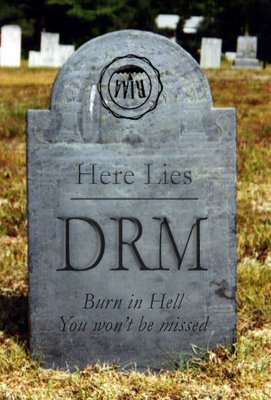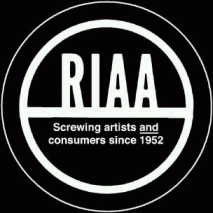AG Alberto Gonzales, wounded by his recent string of lies and spin before Congress, is proposing a crackdown on copyright infringement.
- Permit more wiretaps for piracy investigations. Wiretaps would be authorized for investigations of Americans who are “attempting” to infringe copyrights.
- Allow computers to be seized more readily. Specifically, property such as a PC “intended to be used in any manner” to commit a copyright crime would be subject to forfeiture, including civil asset forfeiture. Civil asset forfeiture has become popular among police agencies in drug cases as a way to gain additional revenue, and is problematic and controversial.
- Increase penalties for violating the Digital Millennium Copyright Act’s anti-circumvention regulations. Currently criminal violations are currently punished by jail times of up to 10 years and fines of up to $1 million. The IPPA would add forfeiture penalties too.
- Add penalties for “intended” copyright crimes. Currently certain copyright crimes require someone to commit the “distribution, including by electronic means, during any 180-day period, of at least 10 copies” valued at over $2,500. The IPPA would insert a new prohibition: actions that were “intended to consist of” distribution.
This is typical of the neocons. The wind is blowing against them, so they’ve redoubled their efforts rather than wondering if it’s a good idea to pursue the same goals so mindlessly.
She’s a witch! Burn the witch!!
It might also be an attempt to woo Hollywood Democrats by making them an offer they can’t refuse. Many Democrats (and Republicans too, of course) take large amounts of money from the MPAA and RIAA (collectively known as the mafiaa), which is fully in support of this legislation. One gets the idea they’d be in support of a bill that called for executions on the spot for suspected pirates. Piracy is much like terrorism that respect; it’s a word used almost exclusively to demonize a certain group, which gives power to those who are able to prosecute and persecute them. Basically, it’s a 21st century witch-hunt.
 Instead of burning people at the stake we need to take a look at the laws on the books and find ways to make them less draconian in an age of easy file-sharing. The ability to share/copy files is one of the greatest uses of the internet and it demands a new way of thinking about copyright and intellectual property. The endless roadblocks we get from politicians and businessmen (including legislation like the DMCA, copy-protection like DRM and lawsuits like the RIAA’s campaign against music-sharing) only serve to slow down innovation and erect huge barriers of entry that make it hard for start-ups and small businesses to make a dent in the marketplace with a new idea.
Instead of burning people at the stake we need to take a look at the laws on the books and find ways to make them less draconian in an age of easy file-sharing. The ability to share/copy files is one of the greatest uses of the internet and it demands a new way of thinking about copyright and intellectual property. The endless roadblocks we get from politicians and businessmen (including legislation like the DMCA, copy-protection like DRM and lawsuits like the RIAA’s campaign against music-sharing) only serve to slow down innovation and erect huge barriers of entry that make it hard for start-ups and small businesses to make a dent in the marketplace with a new idea.
This legislation (the Intellectual Property Protection Act of 2007 [pdf]) might backfire if it is passed. It will push more and more people to use free and open source software in order to avoid potential liability. Even having a copy of Microsoft Word is dangerous if you don’t also have a receipt proving ownership.
The War on Common Sense
Add the War on Piracy to the growing list of ideological wars we’re fighting, including the War on Terror and the War on Drugs. If it seems odd to you that we’re waging “war” against a tactic (terrorism) and an inanimate object (why don’t they put the drugs in jail?), that means that you don’t have sufficient faith in our dear leaders.
I would argue that the Big 3 Unwinnable Ideological Wars constitute an undeclared War on Common Sense. The War on Common Sense is designed to make the general populace believe that up is down, day is night, freedom is slavery and George Bush is a genius.
Please notice the tremendous power that is derived from a war, even a fake one. There’s a reason why we don’t still wage the War on Poverty (well besides the fact that the ruling elite don’t give a fuck) — there’s not an easily-demonized enemy that the ruling class can disparage in order to increase their own power and prestige. If such an enemy exists, it’s almost certainly the ruling class itself. That’s not gonna work! It’s best to have a war on somebody who can’t really fight back.
So what’s next? Well, I’d guess we’ll have a War on Illegal Immigration, which will do nothing to stop the flood of immigrants coming into the country because it won’t go after the root problem: the economic disparity between the U.S. and Mexico. Like the War on Drugs, illegal immigration is a problem caused by the policies of the wealthy elite and far from suffering from this problem the elite actually make a shitload of money from it. The CIA runs drugs to pay for their illegal black ops and a whole parasitic class of DEA agents and police officers have grown fat arresting nonviolent drug offenders in order to continue the charade.
Similarly, the corporate elite have grown even more wealthy from illegal immigration. Instead of paying their workers a fair wage they employ illegal immigrants for a fraction of the salary a naturalized citizen would earn. This simultaneously impoverishes Americans who can’t find a job and enslaves illegal immigrants to a corrupt system that gives them just enough money to get by and not a penny more… all while making the CEOs of these corporations even richer by saving money on labor costs, which is reflected in their end of the year bonus. What a great scam!
The War on Terror is a money-making scheme as well. If you doubt this, I suggest you watch Iraq for Sale, a documentary about war profiteering in Iraq. The government sends incredible amounts of money to private contractors like Blackwater and Halliburton, then some of this money is funneled back to the very people who came up with the idea of going to war in Iraq in the form of campaign contributions (you know: legalized bribery). It’s an endless loop of corruption! Legal corruption!
The War on Piracy will have to evolve to a similarly corrupt state if it wishes to become self-perpetuating. Certainly, there is some money to be made by suing college students, but that’s chickenfeed. Clearly the RIAA is getting better at extortion so they don’t even have to go to trial in most cases, but I’m guessing there’s still a lot of overhead. If they really want to make a mint they should look into what Canada is doing. Making innocent people pay for “crimes” they might or might not commit is so much more fun and profitable. The copyright tax is applied to everybody and it’s institutionalized so it will be damn near impossible to get rid of. As bad as the RIAA is, they haven’t managed to achieve something that evil… yet.
How long before people wake up to the fact that these ideological wars are always ineffective at achieving their stated goals because the real goals are hidden — and they involve profiting off the situation, not solving it. I suppose it takes a certain amount of cynicism to believe your fellow man is capable of such two-faced corruption. But that’s the way it is, folks.
Maybe we should declare a moratorium on bullshit wars.
 Filed Under :
Filed Under :  Dec.20,2007
Dec.20,2007 This post currently has
no screeches.
This post currently has
no screeches.




